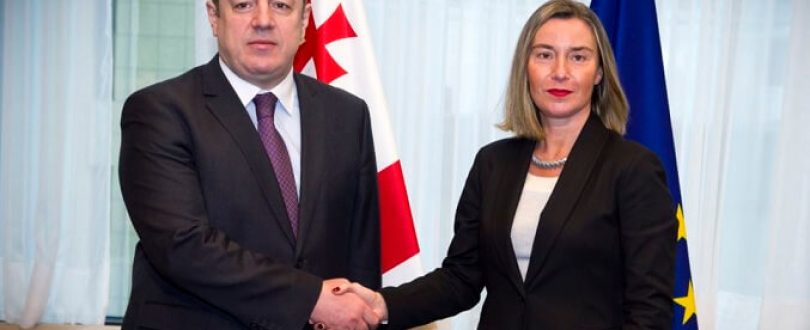
Georgians Visited Europe 258,663 Times Since Visa-free Deal.
One year after getting visa liberalization, the leaders of Georgia assessed the Georgia-EU visa-free deal as the greatest achievement for the country so far.
Within the year, according to the Georgian Interior Ministry, 192,453 Georgian citizens have visited the Schengen Zone 258,663 times in total, while 1001 Georgians have been refused entry to the EU territory.
Georgian Leaders Assess Visa Liberalization as Georgia’s Greatest Achievements
According to the Georgian PM Giorgi Kvirikashvili, the historic decision of visa liberalization for Georgia would not have been possible without the consistent steps made by the government he leads.
“This is why we are all so proud today. Georgia has made it possible for its citizens to freely travel across the EU/Schengen Zone. This is not only a visa-free travel opportunity, but it is also a huge political step from the EU and our partners towards Georgia and an expression of trust”, he said at the Cabinet meeting on March 28, the day Georgia marked the first anniversary of visa liberalization.
Visa liberalization was assessed as a huge step towards the EU by the Georgian Foreign Minister Mikheil Janelidze, too.
“1 year after Visa-free deal in the #EU and 250 000 visits of Georgian citizens. #Georgia is moving forward on the EU integration path. #Roadmap2EU.” Janelidze wrote on Twitter.
He believes that the importance of visa-free travel is not only of practical importance but rather of political importance, proving that the country of Georgia has made another step towards the EU.
“Visa liberalization process has brought a lot of other tangible results like tourism development, new business connections, the enlargement of student exchange programs and people-to-people communication, in general,” Minister Janelidze said.
Georgia’s Visa Liberalization With EU Under Threat
However, because of the number of Georgian asylum seekers, the number of voices that the EU might take measures against Georgia has increased.
In January this year, the correspondent of Radio Free Europe in Strasbourg, Rikard Jozwiak, took the issue to Twitter, where he expressed his concerns, claiming that the EU member states were worried about the number of asylum seekers from Georgia. He also added that the EU diplomats would debate on a suspension mechanism for Georgia.
According to the visa liberalization suspension mechanism of the European Union, delaying the visa-waiver deal for nine months might be applied if a certain country violates the agreement.
The claim raised a lot of concerns and caused harsh reactions among Georgian politicians and citizens. However, the number of refusals of entry and illegal overstay in the Schengen area has increased slightly. In Sweden, aside from Syrians, Georgians have constituted the highest group of asylum seekers so far this year. The situation becomes more concerning taking into account that since the declaration of independence in the early 1990s, Georgia has lost 1/3 of its population as a result of the ongoing mass exodus.
Measures Taken to Prevent Georgians Flee to the EU
In early March this year, Georgian President Giorgi Margvelashvili, announced during a meeting of the European Union interior ministers in Brussels, that Tbilisi is ready to take more action and introduce new measures in order to preserve the visa-free deal with the Schengen Area.
Meanwhile, the EU Home Affairs Council, German Interior Minister Thomas de Maiziere, during the same meeting, called the current number of people seeking asylum in Schengen Countries “worrisome”, adding that the EU member countries would discuss the consequences that Georgia will have to face if the situation doesn’t change.
Among the measures taken in this regard, it is also the tautening of the procedures for changing last name, which has become a common problem in Georgia, since people who were sent back home after committing crimes in Europe are using this right to take new identities and reach for the European Union countries again.

